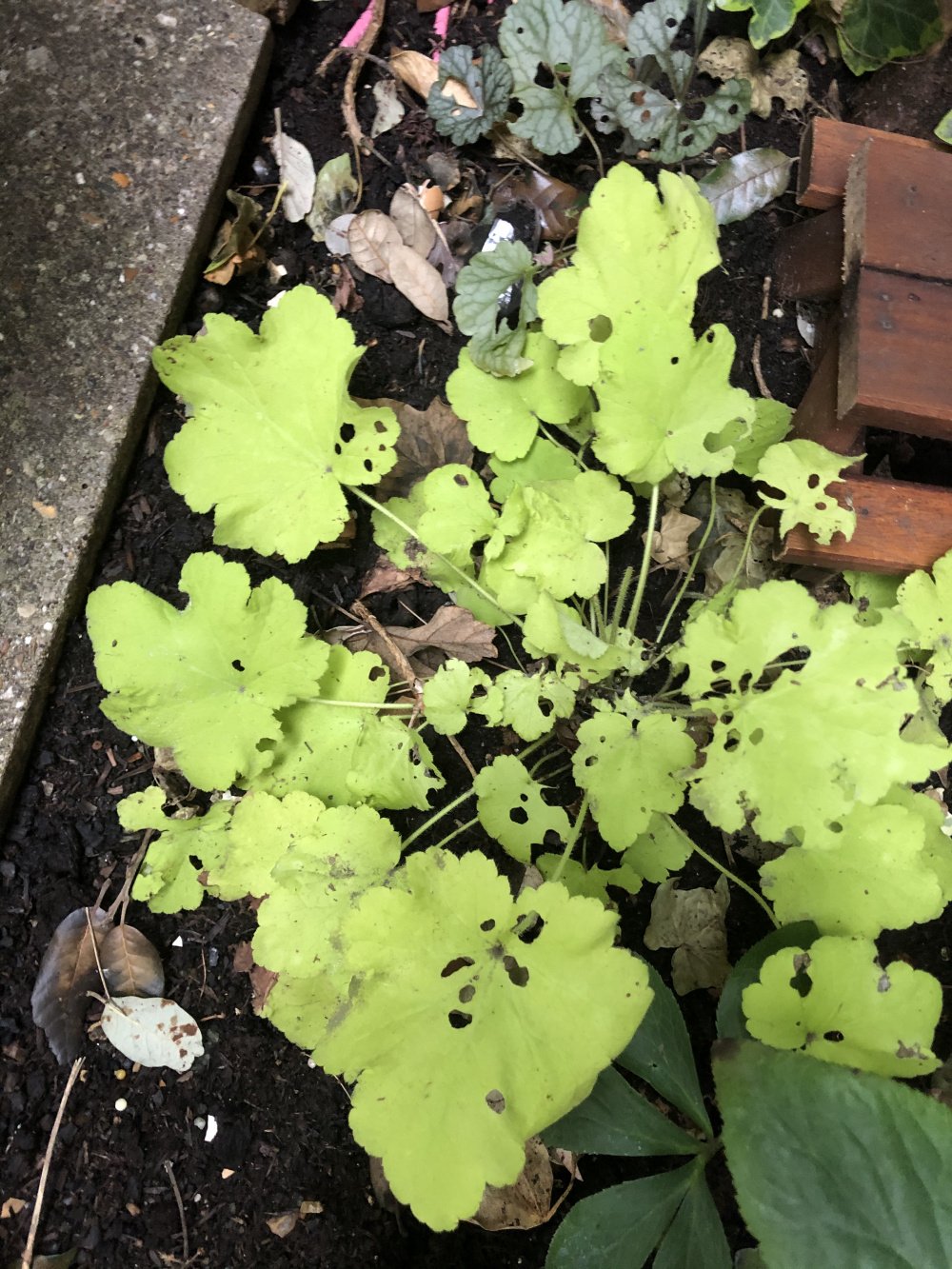This Forum will close on Wednesday 27 March, 2024. Please refer to the announcement on the Discussions page for further detail.
What’s eating my heuchura?!
I’m very new to having any space to grow things, so please excuse if I’m totally ignorant!
After a year of experimenting with what can grow in my very dark damp yard I was delighted to discover heuchera that like shade!
Unfortunate over the winter they have been getting holes in the leaves. I can’t see any insects on the leaves. I saw a little catapiller like thing once but otherwise nothing.
like thing once but otherwise nothing.
 like thing once but otherwise nothing.
like thing once but otherwise nothing. I put nemasays weevil killer and slug killer down at the beginning of january but the holes are still getting bigger!
Should I just repeat the treatment or do I need to do something else?
im super sad as it’s spreading along all of them do any Adobe would be much appreciated!
im super sad as it’s spreading along all of them do any Adobe would be much appreciated!
0
Posts
edit to add - some of the holes look like could be weevil, but just not all. Hopefully someone with heucheras will be along to answer.
I find it's always best to have some cuttings of all of my Heuchara's, so that I can afford to lose some to Vine Weevil. They are very easy to root from cuttings. I try to avoid growing Heuchara's in pots, as Vine Weevil tend to prefer plants in pots, than ones in the ground.
If you want to be sure the Vine Weevil killer has worked, wait until Spring and then dig up your plant, to see if you can see any living larvae. Although small, they are usually quite easy to spot, as they are white with brown heads. That might also be a good time to divide your plant to get some spares.
While vine weevil is indeed a problem with Heucheras, that looks like slug damage in your photo.
It's the weevil grubs which do the damage anyway - they feed on the roots. If you gently pull on the plant and it just comes away in your hand, then it's weevil damage. You can clean off the soil on the roots and replant, and put any grubs you find out for the birds to eat. They're always more susceptible in pots too - always better in the ground, so bear that in mind too
I live in west central Scotland - not where that photo is...